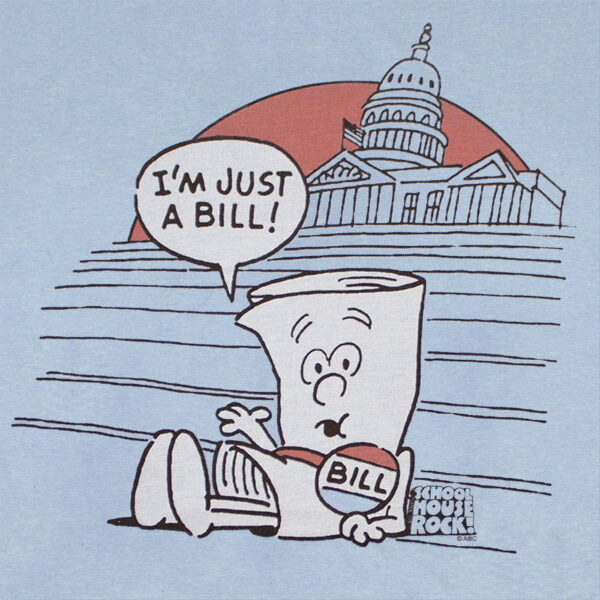Insights < BACK TO ALL INSIGHTS
But today I am still just a Bill
But today I am still just a Bill
By: James Trusty
By all accounts, a bill for legalized sports betting in D.C. (“The Sports Wagering Lottery Amendment Act of 2018”) was well-received last week by the City Council, but the byzantine process by which it might become a law leaves plenty of opportunities for mischief. On Wednesday, Councilman Jack Evans introduced legislation with the support of Mayor Bowser and co-sponsorship of five other councilmembers, and with no obvious opposition among the 13-member Council. While Delaware and West Virginia have beaten D.C. to the punch with legalized sports betting, the capital remains poised to leap ahead of neighboring Maryland and Virginia if the bill becomes law of the land.
The details of the bill in its current form are fairly unremarkable, although they are expected to change before final passage: the D.C. Chief Financial Officer, who currently oversees the city’s lottery, would serve as the regulating body. There would be a $50,000 licensing fee, with sports betting taxed at 10% of gross revenue. Betting would initially be provided by sports facilities and bars, but a sports app for mobile betting is expected in short order. Athletes, coaches, and officials would be barred from sports bets, and there is no “integrity fee,” a concept pursued by professional leagues as a way of seeking a windfall from sports betting. Revenue from the betting would go to D.C.’s early childhood education and arts funds.
The next step is finance committee approval, followed by two readings before the full Council, and then a vote. If successful, the bill then goes to the mayor’s office for her signature. After clearing the local hurdles, the bill goes to the U.S. Senate for a 30-day review period. This is the most interesting part of the process. Inaction means validation—if the Senate does nothing, it becomes a kind of “pocket validation,” where the D.C. bill becomes law. To reject the bill, Congress would have to get both houses to enact a joint resolution, and the President would have to sign it. If the bill’s proponents have it right, the sports betting Bill could become Law by year’s end. But don’t cue the Schoolhouse Rock song about legislation quite yet.
Reading the Congressional tea leaves on this issue is decidedly difficult. Senators Schumer and Hatch have floated the idea of a federal regulatory framework, so they could see this bill as an opportunity to declare “chaos” and make their pitch for the “order” that flows from federal uniformity. Strictly moral opposition to sports betting seems to have generally declined over the years, and many who may have once resisted legalization now recognize that U.S. regulation protects the consumers from fraud while filling state coffers with newfound dollars. But, the idea of rejection through a joint resolution and presidential concurrence is not totally unheard of in D.C. lawmaking. Since the advent of Home Rule in 1973, Congress has successfully passed resolutions of disapproval on three occasions.[1] Recent events suggest that the current House membership has been more vigorously pursuing disapprovals than their colleagues in the Senate, although these tend to be on the somewhat more hot-button issues of abortion, gun rights, and marijuana legalization.
The greater danger may be that the bill gets through the Congress without explicit rejection, but then finds itself gutted by the next fiscal Appropriations Act. Tying a reversal of the D.C. bill’s substance to the city’s funding is another way to practically prevent legalized sports betting. Congress has had decidedly mixed results when they use the purse strings to attack D.C. laws, and it certainly spurs discontent among those seeking greater autonomy, i.e. statehood, for D.C.
The best predictor of whether an Appropriations Act “veto” is in the cards may be to see if official comments surface during the 30-day Congressional review period. While disparaging comments about sports betting have no legal effect on the pending bill, they might gauge the temperature of opponents who might ambush poor Bill after he celebrated becoming a Law. My recollection of Schoolhouse Rock is that when Bill got passed into Law, he sang in celebration just outside the doors of the Capital. But with the Rube Goldberg process accompanying D.C. lawmaking, Bill better run down those Congressional steps after passage and keep his papery head on a swivel until the next Appropriations Act has come and gone.
[1] The Location of Chanceries Act of 1979, The District of Columbia Sexual Assault Reform Act of 1981, and the Schedule of Heights Amendment Act of 1990.





